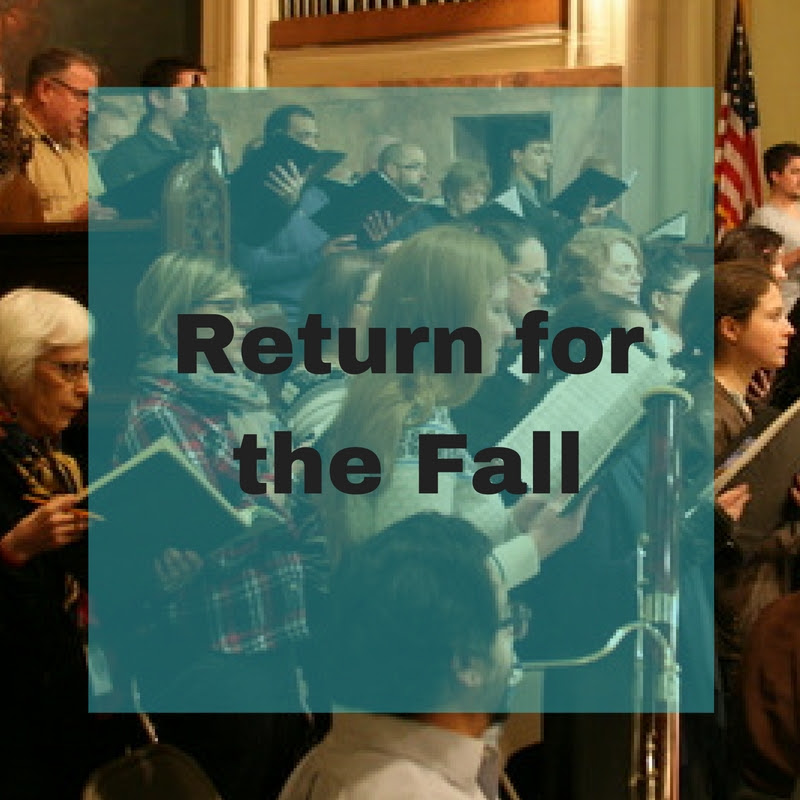Notes on Our Program
/Our first concert of the season is this Sunday, November 20, at 3 pm at the Church of the Incarnation, 209 Madison Avenue at 35th St. Tickets are $30 online and at the door.
To get you in the mood for the music, enjoy our program notes:
“When We Were” is a song poem for choir, organ, cello and soprano. It is in three parts: "Then," "Now," and "When.” Each part consists of distinct roles: the nostalgic chorale reminisces memories; a solo cello emulates the voice of the present reality, and conscience; the organ records the passing of time; and a solo soprano invokes innocence and hope.
The text is driven by fragments from a poem that my grandfather, Dr. Dong Whan Lee, wrote shortly after the Korean War in ancient Chinese calligraphy—one in a collection of 86 poems translated and published in Korean titled “Field of Tea/Snowy Mountain/Spring Mountain.” This text depicts the devastation and displacement that war leaves behind, time unwarranted. These fragments are sung in Korean, written out phonetically in English for the choir.
In the eight minutes of the piece, the music pushes and pulls in and out of the feeling of the present and past, eventually letting go completely. This is depicted in the ascending line of the cello harmonics, which disappear on a high “E” tremolo, closing the piece.
The chorus holds onto the key of D minor while the organ counterpoints a dissonant B minor stubbornly against it. The cello lives in a sound bubble of five notes C, D, E, F# and Bb. Much like Messiaen, inspiration was found in the birds that would sing me awake at dawn. A rhythmic notation unveiled itself, working its way into the solo cello. In the “Now” middle section, the choir blows through organ pipes and sings articulated percussive sounds which collectively mimic a sense of the rustling of the leaves and wind blowing through the trees.
One of the many discoveries in writing this piece was that my grandmother was a church organist. This is how my grandfather met her. My mother, Moon Hie, the youngest of six children, grew up to be a soprano and sang in church when my sister, brother, and I were growing up.
I am especially grateful to Christine Kim, my beautiful and talented sister, who is playing this premiere performance on solo cello at the invitation of Artistic Director Dr. Matthew Lewis.
Unintentionally, this has become a deeply personal piece. My hope is that it might resonate with you in a personal way too, providing needed solace, strength, and peace—a respect for the fragility of life.
My dear friend Joanne Cheung, who took on the task of translating this poem, found in reaching out to her grandfather for guidance in translating, that he had fought in the Korean War. He currently resides in Los Angeles where my grandfather also lived. Pauline Kim Harris
Argentinian composer Alberto Evartisto Ginastera (1916-1983) is considered one of the most important composers of the Americas. He wrote Psalm 150 in 1938 and the world premiere was in Buenos Aires in 1945. The North American premiere was given in 1968 by the Philadelphia Orchestra, Eugene Ormandy conducting. This colorful work employs several interesting composition techniques, most notably polytonality, while some sections refer to Renaissance polyphony. A serene Alleluia grows into an outburst of joy, concluding the work.
Jean Berger (1909-2002) is known primarily as a pianist and composer of choral music. He was born Arthur Scholssberg into a German Jewish family. He moved to Paris in 1933, after the Nazis took power, changing his name to Jean Berger. He eventually moved to the United States where he established himself as a college educator. His Brazilian Psalm is an extended a cappella work, rarely performed in its entirety. An interesting mix of harmonic styles, it eventually settles into an Alleluia which concludes the piece.
The Missa Brevis of Zoltán Kodály is a tour-de-force—colorful, expressive, exuberant, and energetic, this is a masterpiece of the choral literature. Kodály (1882-1967) was a Hungarian composer and ethnomusicologist. In addition to his many compositions, he is known as the founder of the Kodály Method, an approach to music education. The original version of the Missa Brevis is the one heard today, scored for organ, chorus, and soloists. He later orchestrated the piece. Kodály remained in Hungary during the Nazi occupation. Amid the chaos of war, during which the Red Army eventually overcame the German forces in Budapest, he took refuge in the Opera House. During repeated bombings of the city, he finished a composition he had started years earlier: this very Mass setting. Amazing that in the middle of such chaos, such beauty emerged!









